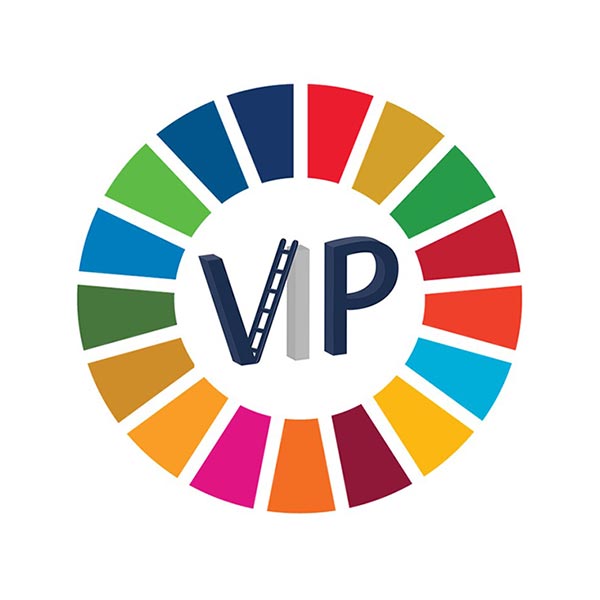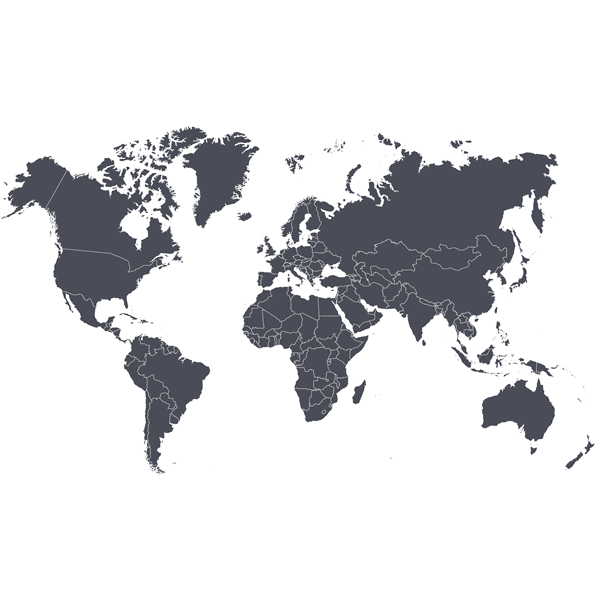
Research & advisingVertically Integrated Projects for Sustainable Development (VIP4SD)
Background
Our Internationally acclaimed and award winning VIP4SD programme comprises a number of multidisciplinary projects working across all four of Strathclyde’s faculties, bringing together students from different levels of study and disciplines to work in partnership with staff on research projects that address the UN Sustainable Development Goals (SDGs). The programme is embedded within Strathclyde curricula, meaning students gain academic credits while working to address real-world problems through their collaborative projects. This enables students to gain the competencies required to tackle complex global challenges. The VIP4SD programme is an exemplar of Research-Based Education for Sustainable Development (RBESD), and evidence of Strathclyde fulfilling its commitment to embed ESD in its UG and PG curricula.
VIP4SD uses the Vertically Integrated Projects (VIP) model, which facilitates students from different year groups working together on research-based projects over a number of years, meaning students are able to build upon their own research and that of their peers while working alongside them as they progress through their degree programme. At Strathclyde, projects furthermore bring together students from multiple disciplines. In 2016, the programme aligned itself with the UN SDGs in recognition of Agenda 2030; all VIP4SD projects therefore work to address at least one primary SDG.

Beneficiaries
The main beneficiaries of the VIP4SD programme are students, through their transformational learning experience, the communities they serve, and society as a whole, as Strathclyde remains committed to not only producing top quality graduates for employers but also socially responsible global citizens.
The VIP4SD model represents a way of embedding ESD in higher education curricula that offers our students an opportunity and platform to work with researchers and academics to make a positive and lasting impact on society now, and inspiring them to continue to do so throughout their careers. The VIP4SD programme at Strathclyde, represents a model for socially progressive HEIs to prepare our students for “the world of work by tackling the work of the world”.
The VIP4SD programme provides a unique opportunity for undergraduate students to work with academic staff, postgraduate researchers and others, on real-world research projects tackling the SDGs. The VIP model allows teams to tackle the long-term, multidisciplinary research challenges that underpin these interconnected Global Goals, and deliver research outcomes that can make an impact now and beyond the 2030 target date. While students gain experience and transferrable skills, staff gain support for what is often teaching-led research delivered by a continuous stream of students.
The VIP4SD programme conducts outreach both locally and internationally. Participating pupils at a local primary school, located in one of the most deprived areas of Glasgow, saw a 25% increase in their argumentation skills following their involvement with the STEM Education Project (SDG 4). Further afield, the Energy for Development Project (SDG 7) has completed 12 solar PV installations in schools, nursing colleges and health clinics located in remote areas of the Gambia and India.
Collaborators
Individual projects work with a range of collaborators including local schools, the NHS, as well as partners in Malawi, Rwanda and the Gambia. At a programme level, VIP4SD is a founding member of the international VIP Consortium, which comprises over 40 VIP sites across the world. We also work with the Environmental Association for Universities and Colleges (EAUC), Learning for Sustainability Scotland (LfSS), the Scottish Government, the SDG Network, the Association of Commonwealth Universities and The Royal Academy of Engineering.
Sustainable Development Goals (SDGs)
The key overarching SDG of the VIP4SD programme is SDG 4: Quality Education. However, our projects also tackle SDGs 3, 5, 6, 7, 9, 10, 16 and 17. Our aim is to eventually have projects that address all of these goals.
Impact achieved
Our projects have achieved wide-ranging impact, in addition to the previously mentioned impact of STEM Education and Energy for Development:
- Water, Sanitation and Hygiene (WASH) (SDG 6) has developed low-cost water pumps and a database and GIS tool for the identification and assessment of well sites across Malawi
- TextLab (SDG 4) has developed a website designed to introduce school pupils to Shakespeare’s language and STEM through digital methods for text analysis. The work from the project has also been influential in productions of Shakespeare’s plays at The Globe, London.
- Drug Discovery (SDG 3) has developed new techniques to discover new antibiotic producing organisms using hyperspectral imaging. The team have identified a number of novel bacterial strains that have the potential to make new antibiotics.
- Energy for Development (SDG 7) has additionally developed minigrid design tools and remote monitoring systems for off-grid energy in The Gambia and India.
At programme level, VIP4SD won the 2020 International Green Gown for Student Engagement in a Large Institution. Established as the most prestigious recognition of sustainability best practice within the education sector globally, the International Green Gown Awards provide benchmarks for excellence and are aligned with the UN SDGs.
Challenges & lessons learned
Currently, our main challenges are finding space in the curriculum so that all Strathclyde students can participate in the programme, and getting colleagues on board who can develop new projects in underrepresented disciplines.
The COVID-19 pandemic also presents challenges, but also brings new opportunities for online and blended learning. We have been able to seize these opportunities, and this academic year we have a new project starting that will have Education students researching the impact of global crises (primarily the pandemic) on access to early year education in The Gambia and Scotland.
In addition, we are currently exploring opportunities for Collaborative Online International Learning (COIL) through VIP4SD, which will seek to connect students from different Universities across the world to incorporate an international dimension to these research teams, and offer the opportunity for our students to develop inter-cultural competencies remotely. The research-based teaching model used by VIP4SD also means that the majority of projects are able to move online with relative ease, presenting an engaging online learning opportunity for students.
Over time we have learned that rather than waiting for the ideal conditions to launch something new, much can be achieved by starting small, being persistent and building gradually.
